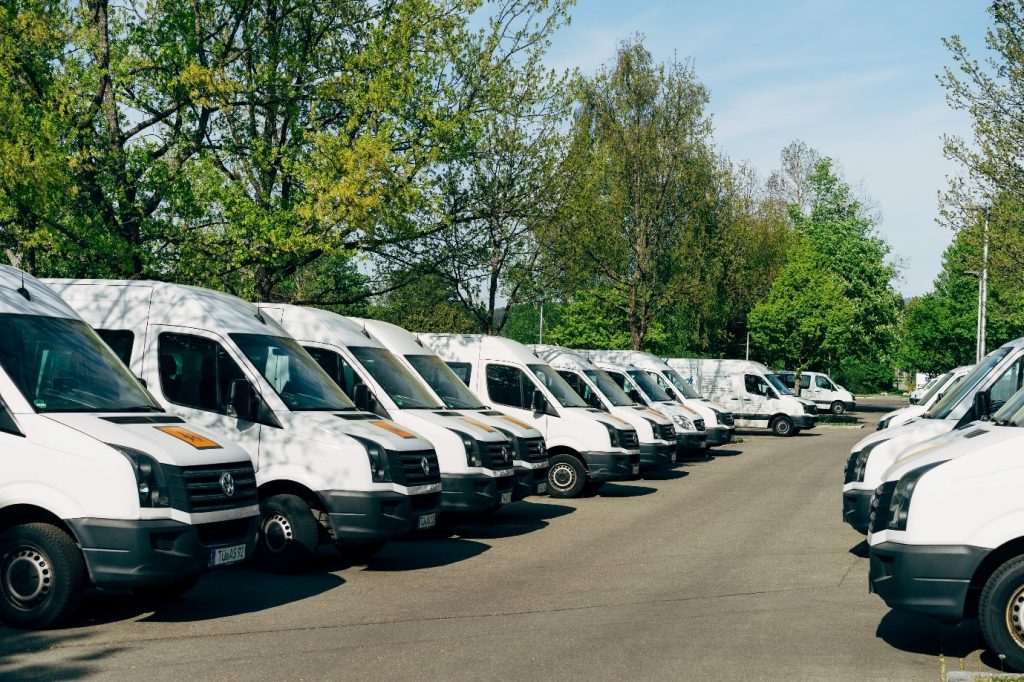How the Coronavirus Pandemic Has Affected Fleets Across UK
The Coronavirus pandemic has hit every industry across the world, completely transforming the way many businesses work and there is good reason to believe it may have everlasting consequences that alter the very structures and processes under which some industries operate.
Fleet management is no different. This major scientific and societal challenge has hit fleets hard, introducing both short term and longer-term impacts and new ways of working. Strategies have been shifted to adjust to working from home and circumventing travel limitations and the cancellation of industry events.

Help from the Leasing Industry
Leasing companies that work with fleet managers have had to make changes to mitigate the impact that Covid-19 has had on the fleet industry. From vehicles being left idle and lockdown resulting in a decrease in demand, leasing companies have had to adapt to the sudden change, and many decided to help out their customers by extending contracts and minimising cancellation charges.
Some leasing companies have even provided payment holidays for the fleet sector, allowing them to defer their payments during this difficult time. This industry has been working hard to ensure the continuity of service for essential fleets, and taken into consideration the impact the pandemic has had on non-essential fleets.
Sanitation
Fleet managers have had to implement rigorous sanitation policies to adapt to a world where hygiene is paramount to protecting employees from the virus. Fleet managers must look into best practices for their drivers, as well as the entire company and the general public.
Changes include adhering to government and WHO guidelines, obeying restrictions and encouraging drivers to take additional precautions to further limit the spread of the virus. Fleet managers need to ensure their drivers sanitise frequently touched surfaces in their vehicles, wear glove wherever possible outside and when fuelling the vehicle. Pumps and keypads are frequently touched surfaces that many people will come into contact with throughout the day, meaning they will require regular sanitation to help prevent the potential spread of the virus. This has been especially important for fleets which use fuel management systems where all the drivers may handle the same pumps.
Vehicles also need to be thoroughly wiped down between shifts, and drivers should be changing their clothes at the end of a shift and washing their hands thoroughly. Without access to soap and water on the road, drivers should have an alcohol-based sanitiser with them. When turning in or picking up new vehicles, wiping them down should be a standard health measure.
Managing a Fleet Remotely
As remote working has become the new normal, knowing how to effectively manage a fleet remotely has been essential. Communication is key to ensuring an open channel of information between managers and their drivers.
Active fleets during the pandemic have been busier than ever and have had to adapt to new ways of working. Strong communication with drivers has been essential, including the use of telematics data to check how they are working and to ensure the fleet is being run effectively.
With MOTs extended by six months for all vehicles due on or after the 30th March 2020, drivers need to ensure their vehicles are roadworthy and safe. Managers have had an obligation to ensure that they are maintaining their vehicles to take the pressure off garages and breakdown recovery services during this time. Additionally, for those fleet drivers that have contact with the public, fleet managers have had an obligation to ensure that their drivers have been maintaining social distancing under appropriate government guidelines.

A Stall in Manufacturing
Back in March, carmakers across Europe announced closures in reaction to the fall in demand and the lockdown measures that were implemented across the continent. In Italy, car sales for March were down 85%, and in Spain and France sales fell around 70%.
The shutdowns had a substantial effect on the production of vehicles. While the average shutdown duration was 26 working days, it was enough that some carmakers are calling for a delay on the EU CO2 standards and resultant fines that come into force this year.
While car manufactures have started to reopen and resume service, the European Automobile Manufacturers’ Association has called for a fleet renewal programme to restart vehicle demand in Europe.
Telematics
During the pandemic, non-essential fleets have been laid up. In contrast, essential operators such as those in food and medical deliveries have actually experienced a rise in demand, reinforcing the need for more streamlined working practices that are better equipped to deal with unprecedented supply chain challenges.
The telematics industry is helping to support this change by changing their own processes and making it easier for customers to self-install units with tracking capabilities in the short term. They are offering platforms to support operators during the crisis, enabling them to maintain and improve the efficiency of their operations through the likes of AI route planning. Fleet telematics company Microlise even made its SmartFlow driver and workflow management app free for the duration of the pandemic.

Potential Long-Term Changes
No one is certain how long this crisis will last or what the long-term effects will be for industries across the world, but it could be argued that this slowdown will have significant impacts on how the entire fleet industry functions.
With home working now standard across so many industries, there is likely to be a reduction in the volume of miles being driven. This, in turn, will make UK roads safer, and there will likely be an improvement to air quality. This has inadvertently given an inroad to two of the biggest challenges that fleet decision-makers face.
Research has shown how cloud software has drastically risen in usage, and employers recognise the value of productivity from their employees that working from home provides. Many experts now believe that working from home could become standard practice as more businesses become receptive to these longer-term changes.
Fewer miles driven could mean that employees become more open to the idea of short and medium-term rental, rather than buying a vehicle as this would soon only be needed in the case of essential job-need cars.
The fleet industry has already seen mobility-as-a-service fast become a reality, and the pandemic could only serve to push this further into the mainstream. We could see a change from vehicle allocation policies move to employees being provided with a monthly allowance for travel, with remote working increasing the need for higher-mileage vehicle contracts.
It has been a strange time in our lives for all industries, and Covid-19 will likely have a lasting impact on every sector, including fleet management. It’s more important than ever that fleet managers are staying on top of government guidelines and adapting to new ways of working so they can continue to operate safely and efficiently.







